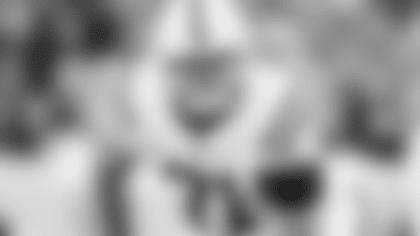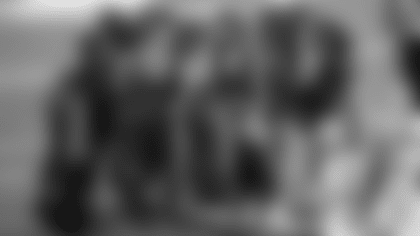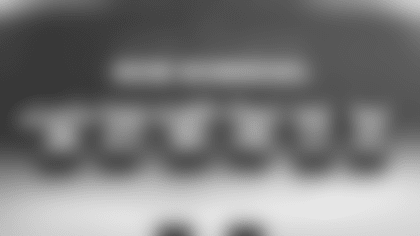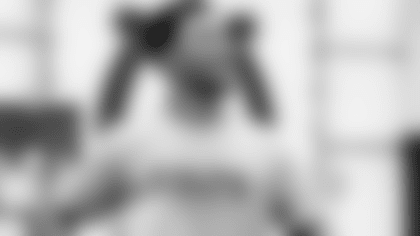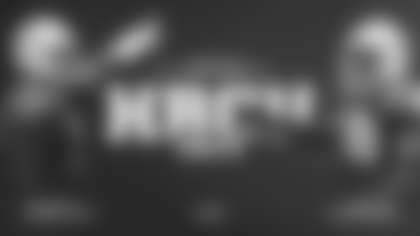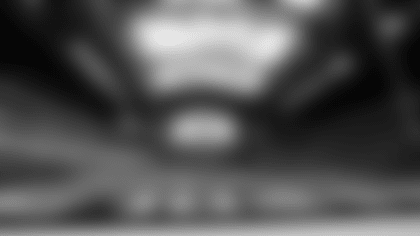Bill Polian is in his first season as Colts vice chairman after spending the previous 13 seasons as Colts president. Polian has a resume unique in the NFL. The only man to win NFL Executive of the Year six times, Polian in the 1980s built the Buffalo Bills into a four-time Super Bowl participant. In the mid-1990s, he built the expansion Carolina Panthers into a team that made the NFC Championship game in its second season, 1996. Since joining Indianapolis in 1998, he built the Colts from a 3-13 team in 1997 and 1998 into one that has made the playoffs 11 of the last 12 seasons, including AFC Championship game appearances after the 2003, 2006 and 2009 seasons, an AFC East title in 1999, AFC South titles in 2003, 2004, 2005, 2006, 2007, 2009 and 2010, Super Bowl appearances following the 2006 and 2009 seasons and a Super Bowl championship following the 2006 season. Each week during the season, in The Polian Corner, Polian and Colts.com will discuss issues pertinent to the Colts and the rest of the NFL.
The Polian Corner will run in two installments each week. Below is this week's first installment:
Q: I think it's fair to say the word of the day or of the week is 'frustration,' isn't it?
A: I think people have a right to be frustrated, or the right to be angry. I'm angry, to be truthful with you. At some point, you have to sit back and coldly assess where you are and what you are. Since we've played eight games, I think we have a pretty good picture of where we are and what we are. Where we are is in last place, and as Bill Parcells is fond of saying, 'You are what your record says you are.' I think that's right. As a football team, I think our talent level, the quality of our head coach, the effort we've given and all of that, certainly is not at the bottom of the barrel. We are a team that does things incorrectly repeatedly, and that has come back to haunt us. This game yesterday was a microcosm in my mind of what the season has been. (The) New Orleans (game) we said was an anomaly. As embarrassing as it was, it was an anomaly. Yesterday, like many of our other games, we're in against a team that has a similar talent level to us, and we're in a position where we are markedly weakened on the offensive line by injury, and we're markedly weakened on the defensive line by injury. That happens to everybody, not to the extent that it's happened on our offensive line. I don't think anybody has had that kind of a disaster this year. That's life. You live with it. As Bill Parcells is fond of saying, 'There is a way of winning every game.' I quote him all the time because he's a heck of a football coach and a great football philosopher. He knows football inside and out. What happened yesterday is a microcosm. The positives are that with two guards, who had never played extensively in the National Football League, we run the ball very well, we pass protect reasonably well. There were breakdowns. It wasn't a winning performance in pass protection. You wouldn't necessarily expect that, given the level of their (Tennessee) talent and the fact our guys are so new at it. The running game was good, and the passing game was decent. There's reason to believe the running game should get better because it has gotten better every week. So that's a positive. On the defensive side of the ball, we did a heck of a job. Our tackles came to play. They got up the field. They got into the gaps. They knocked the other team back. They quit wallowing around like they did against New Orleans. It's fair to say there were a lot of people mad in this building about how they played against New Orleans. They heard it and responded. They cleaned up their techniques, and they did a great job. That part of it was really good. They're (Tennessee) a good running team, and I believe we held them under 100 yards. (Javon) Ringer did a great job, but (Chris) Johnson didn't hurt us. He didn't get any big ones for big plays. We created some sacks, and we created some second- and third-and-15s and third-and-13s and put pressure on their passer. Then, once again, as has happened all year, we don't get off the field on third down, and we made two technique mistakes in coverage that leave us vulnerable to in one case a touchdown and the other a big play that led to a touchdown. That's been a constant, almost back to the Jets playoff game a year ago. The way we've lost the games is really rather similar. We had some turnovers yesterday, but one was a batted ball. That certainly was not Curtis' (Painter) fault. The other was probably an ill-advised throw, maybe an ill-advised call in that situation, but, nonetheless, not a good throw. Should it have been caught? Perhaps. You can spread a lot of blame around there, but that's not an anomaly, that's not a tough break. A batted ball is a tough break. Credit one interception to us. Then, we have the special teams. You have a punt blocked. When you have a punt blocked in the National Football League, the likelihood is extremely strong you will lose the game. It's really that simple. Secondly, we lose 50 yards on ill-advised kickoff returns. We should not have brought the ball out. There was no reason to do it. We've got a weakened offensive line. We're in the position where we're playing with a back-up quarterback, albeit a pretty good one. Why do you want to put your offense in a hole? What are the chances of making a big play as opposed to having a hurtful play? That's what Bill Parcells means by, 'There's a way to win every game.' When you're under-manned, there's a way to win. Swashbuckling is not the way to do it. That, too, is constant. Go back to the Cincinnati game, the Jets (playoff) game (last year), those kinds of things have cropped up. The bottom line is for eight games, we can stay pretty even with teams that are not overwhelmingly talented and play pretty well, but we haven't been able to finish the job, and we've hurt ourselves, particularly on third down and (not) getting off the field, and, without question, on special teams. We've got to continue the progress we're making with the run game. We have to continue to play as hard as we've been playing, which is to our credit. I read something today where someone said, 'You don't get any credit for playing hard.' That person doesn't know what he's talking about. You have to play hard, and there are teams that don't. The bottom line is we do get credit for that. I give great credit for that. The head coach deserves credit for that, and the leaders deserve credit for that. We're limited in the number of explosive plays we can make on offense and the passing game because it's tough to protect. In order to make explosive plays, you have to protect. With four of five starters on the offensive line gone, it's hard to protect consistently. The coaches have done a good job covering that up. We can do better there. We can help Curtis there a little more. Hopefully, we'll get some people back healthy in the not-too-distant future. On defense, we proved once again, against a very good running attack, our front seven can play with anybody. When they execute their techniques correctly, our front seven can play with anybody. They are plenty of people in this league who would take a lot of our guys on the front seven. The backend of it is, at the cornerback position not the safeties, the safeties play pretty darned well, the cornerback position is just puzzling. Part of it is the nickel defense technique. They have to clean it up, work on it and get better at it. We can do that. I read some place where, 'Anger leads to positive action, as opposed to passivity.' There are plenty of people around this building who are angry, and it should lead to positive action. If we do that, continue to build on the strengths that we have, we'll be able to play with a lot of the teams that are on our schedule. There are some teams that may overwhelm us with speed or with firepower but bottom line, we can play a lot better and win a lot more games if we just clean up those two things – special teams and get off the field on third down.
Q: You mention 'technique' a lot. Can you explain what that is?
A: For example, a defensive tackle has to come off the ball low. He can't stand up. He has to come off low. Last week, John Teerlinck, our excellent defensive line coach, was emphasizing with those guys, 'Come off low, get in your gap, create a crack in that gap, get up the field, get in a position where you're the aggressor.' You have to be low to do that. You have to have the right foot placement. You have to come off the ball and blast people, and then you have to read your keys. You can't just sit there and catch somebody and hope to be successful. That's a good example of it. (It's) the same thing with coverage in the secondary. If you have a guy man-to-man, you have to watch him. You can't peek at the quarterback. If you peek at the quarterback, you're going to get burned. It's really that simple, it goes back to high school. You teach that at the high school level. Sometimes, our guys forget that. It has to be re-emphasized. You have to talk about it. You have to practice it. Lots of time it isn't practicing X's and O's, it's practicing techniques. I'll quote John Teerlinck, he said he was as mad as he could be about how his guys played against New Orleans. He said, 'The way to get better is to get us better. Don't worry about the other team. Let's get us better.' He's quoting Tony Dungy, but that's absolutely the case. There are areas we have to get better at. We have to be better on special teams. We have to be better on third down. The way to do that is technique.
Q: Can you address Jim Caldwell's status as head coach? Also, can you talk about how the quarterback position will be approached in the off-season?
A: I on the show last week and I said again tonight, I think Coach (Caldwell) is doing a heck of a job keeping everybody focused, getting his team playing hard, focusing and getting better in a number of different areas. As an example, it's awfully hard to be a good run-blocking team because that requires cohesion, and we've got four brand-new starters on the offensive line, two of whom were not in training camp. Bottom line, he's done a heck of a job in a great many areas in improving this football team, not the least of which is Curtis Painter, not the least of which, and kudos to (former Quarterbacks Coach) Frank Reich for developing Curtis Painter. Curtis didn't get very many (practice of game) reps. He learned. He grew. Frank helped him grow for the last two years. That's a positive thing. That's good, and (Quarterbacks Coach) Ron Turner's doing a good job with him this year. There are a lot of positive things there. I can't speak for (Owner and CEO) Jim Irsay, but I see a lot of positive things with our football team. With respect to Curtis running the ball, that's just based on a key. If he gets a key that tells him he can run, then he goes ahead and does it. He has the ability to do it. He has the ability to quarterback sneak in fourth-down or third-and-short situations. That's a good thing to have. He's talented, and he's done a good job. He's taken over the huddle. He calls a good game. By and large, his decision-making is pretty good, probably very good by the standards of a guy who has only played six football games in the National Football League. No complaints at all with Curtis Painter. The draft and what we would do in the draft is an issue I like to call, 'Stories versus realities.' There are people who write and talk stories for a living. They have to have things to talk about, and that's fair. That's fine. They create in their own minds, and in the minds of others, situations that don't exist, grades on players that don't exist that are based on nothing more than hollow talking or watching television. Let's not talk about anybody who's in college now. Let's talk about Ryan Leaf versus Peyton Manning. Fourteen years ago, Ryan Leaf was the greatest thing in the world. He was the guy who was going to lead the franchise that was lucky enough to get him to the 'Promised Land' many times. He was going to win MVPs. He was by far the most talented quarterback. By the way, Peyton Manning had a very low ceiling. He was a product of the system. He had a weak arm. He was skinny, and he couldn't play. That was the consensus of the story-tellers. In February at Combine time, Ryan Leaf set the Combine on fire. When Ryan Leaf and Peyton Manning went head-to-head in their rookie seasons in a preseason game and Leaf happened to have a decent game against our back-up players, it was decided, beyond a shadow of a doubt, that Ryan Leaf was the best quarterback to come out in the last 20 years and Peyton Manning was a bust. I don't have to tell you what the real facts are, the rest of the story as (radio legend) Paul Harvey would say. The bottom line is, I am not interested in stories. I am not interested in anybody's scouting reports, except our scouts. I pay no attention to anyone that writes or talks about draft choices, future draft choices, past draft choices, who doesn't write a scouting report, who doesn't go on campus, who doesn't talk to the coaches, who doesn't take off every bit of videotape. Those people, in my eyes, have no standing. It's fine if they have standing in the eyes of others. I'm speaking only for myself here. You asked the question of me. I'm not questioning their right to say or do or have whatever opinion they wish to have. If you ask me, do I pay attention to it? The answer is absolutely, 100 percent 'no.' I can't tell you now at this point in time who we will draft any more than I could have told you 14 years ago in February that we were going to draft Peyton Manning. We made that decision in the second week of April. We won't make the decision on who we draft this year until the second or third week in April. All those stories are great, they're fine, terrific, read them, and listen to them, I begrudge no one that. The fact of the matter is, when you ask us what we're going to do, we haven't even begun the process. We're just in the exploratory stages now. Believe me, we are not doing anything but trying to win a football game this season, and our focus will be on the draft when it's appropriate for us to focus on the draft.
Q: Is it fair to say that Peyton Manning is being kept on the active roster and if he can play at the end of the season it would be to show him how much he would be able to come back rather than to wait until next spring to find out?
A: Well, I think that's generally true. The only caveat would be I'm not sure we would play him in ballgames. For example, if our offensive line was as beaten up at the end of the season as it is now, I'm not sure we'd run the risk of playing him. Not to denigrate Curtis (Painter) in any way, but a guy coming off that long of a layoff in front of a non-experienced line would be a little difficult. Certainly, if you could get him out on the practice field and let him go full bore in practice that would be a good thing for all the reasons you state, but most importantly for his own self-confidence. For him to feel like, 'Hey, I'm back. I can play. I can do the things necessary to be the player I was.' That I think is really important for him going into the off-season, much more important than (for) us making any kind of decisions on the future. We know that he's not going to play eight more years, so those decisions in many ways have already been made. But the bottom line is that he needs to feel very good about being back and being able to do the things he could always do, so that's why we are keeping him active. You can't practice unless you are on the active list. If you are on the injured reserve list, you are not allowed to practice. Now, we got awfully close a week ago Tuesday to having to use that spot because when (offensive guard) Seth Olsen broke his hand, we were out of moves. We just didn't know what to do on the offensive line. Fortunately, Chris (Polian) and Tom (Telesco) and coach (Jim Caldwell) got together and worked it out, but it was a hard go. There is no guarantee that we can keep him active the whole year, but we're going to do our best for all the reasons you state.





